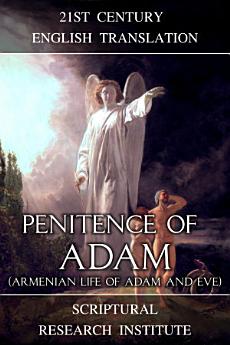Penitence of Adam
यो इ-पुस्तकका बारेमा
A number of references circumstantially date the source-text used for the Greek version, known as the Apocalypse of Moses, to the era when the Greeks ruled Judea, between 330 and 140 BC, however, the source-text for the Latin and Armenian translation appears to have been older. One of the indicators that the source-texts for the Latin and Armenian translations are older than Greek, is the discrepancy between the 72 'strokes' and 70 'wounds' or 'griefs' that God sent to punish Adam. In the Apocalypse of Moses, there are 72, while in the Life of Adam and Eve and Penitence of Adam, there are 70, and these numbers are significant. The number 70 was very significant in the Canaanite and later Israelite (early-Samaritan) religions, however, it was changed to 72 in the Jewish religion for numerological reasons during the late-Persian and early-Greek eras. The number 70 does appear to have continued to be important among the Samaritans until the Hasmoneans virtually wiped them out in 113 BC, after which only the number 72 was used by Jews and Samaritans. This provisionally dates the text to the Persian era, between 525 and 330 BC, however, it could also be a Samaritan text dating to as late as 113 BC.
Both the Latin Life of Adam and Eve, and the Armenian Penitence of Adam, also include the curious reference to 'powers' (virtutes / զաւրութիւնք) being present with the angels. This is generally accepted as proof that either the Latin or Armenian translation was influenced by the other, however, the other option is that something that both the Latin and Armenian translators chose to translate as 'powers' was already in the Semitic source-texts they were using. The obvious Hebrew term for them to have been translating was Elohim, which Jews have traditionally translated the term as 'powers' as it is a plural form, and Jews only worship one God. The Greek scholars that translated the Septuagint at the Library of Alexandria translated the word Elohim as either God or gods, depending on the context, however, there is no reason for the Latin or Armenian scholars to have been dependent on Greek translation norms when translating directly from Hebrew or Aramaic into Latin or Armenian. If the powers in the Latin and Armenian translations were the Elohim in the Semitic source-texts, then this would place the origin of the text to the Persian era at the latest, and almost certainly to the early-Persian era (525 to 330 BC), before Ezra the Scribe reformed Judaism, as there were two Elohim present, and therefore, these Elohim would have to date to the Samaritan priesthood from before the time of Ezra.











